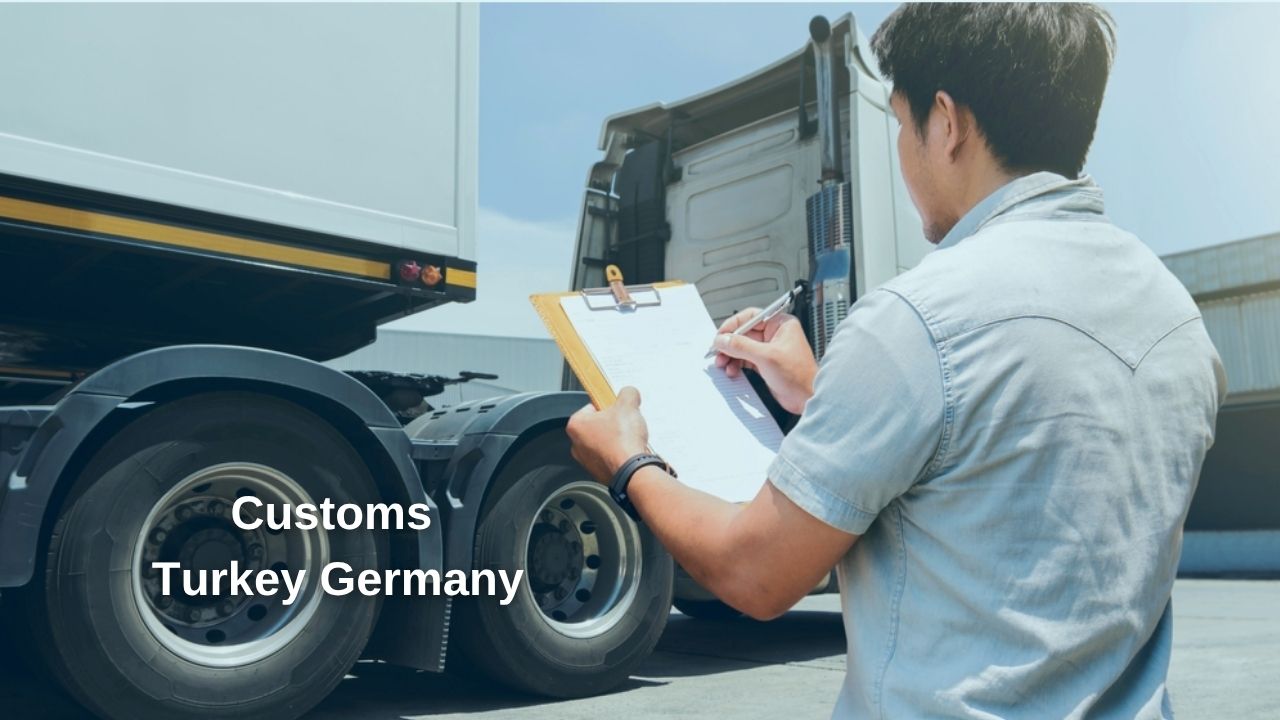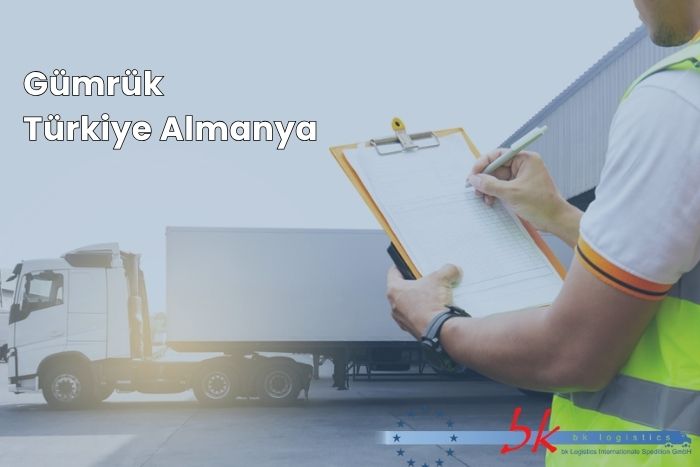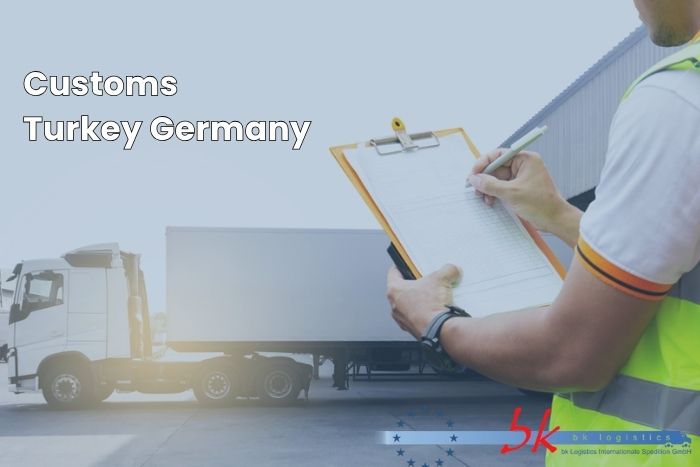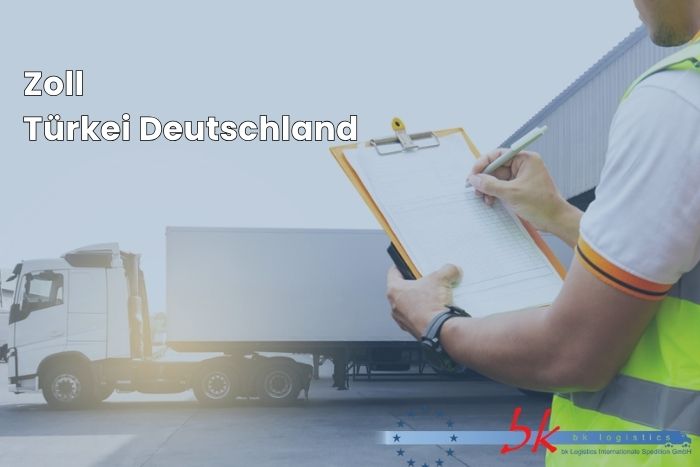News
Customs Turkey Germany
Table of Contents
- How Does the Customs Process Work for Exports from Turkey to Germany?
- What Customs Documents Are Required for Products Sent to Germany?
- How Is a Customs Declaration Prepared for Turkey-Germany Shipments?
- Why Is the GTIP Code Important for Exports to Germany?
- Which Products Are Subject to Detailed Inspection by German Customs?
- Which EORI Number Should Be Used When Sending Cargo to Germany?
- How Long Does the Customs Process Take in Turkey-Germany Road Transportation?
How Does the Customs Process Work for Exports from Turkey to Germany?
When exporting from Turkey to Germany, the customs process follows specific steps. First, the products to be exported must be correctly classified. This classification begins with determining the GTIP codes, with each product evaluated separately.
Next, a commercial invoice, transport document (CMR), packing list, and certificate of origin are prepared. These documents are entered into the customs declaration system electronically. Once the export declaration is approved, the loading process begins.
Upon reaching the departure customs area, document checks are conducted, and physical inspections may be applied if necessary. After controls are completed, the transport document, along with customs seals, is handed to the driver.
The vehicle passes through border gates to Europe and heads toward Germany. At the destination in Germany, import procedures begin, with the German recipient or their representative taking over.
Throughout the process, document compliance, timely delivery, and regulatory adherence ensure seamless transportation. Expert support in managing these steps ensures secure progress at every stage of the logistics process.
What Customs Documents Are Required for Products Sent to Germany?
For products to pass through German customs smoothly, certain documents must be fully prepared. These documents are necessary for both departure procedures in Turkey and entry processes in Germany.
The commercial invoice forms the foundation of customs procedures, detailing the product type, quantity, unit price, and total value. The accompanying packing list shows the arrangement and weight of the products per package, facilitating loading and unloading.
The transport document, CMR, serves as written proof of the transport contract, including details of the sender, recipient, and carrier. It must be presented at border crossings and the destination customs.
A certificate of origin (EUR.1 or ATR) provides tax advantages under trade agreements, with the ATR document commonly used for shipments to Germany.
For certain product groups, technical documents like CE compliance declarations, health certificates, or analysis reports may also be required. Ensuring all documents are consistent is crucial for swift and trouble-free customs processing.

How Is a Customs Declaration Prepared for Turkey-Germany Shipments?
For shipments between Turkey and Germany, the customs declaration is the most critical document forming the legal basis for export procedures. This document is prepared and approved digitally through the Turkish Customs Administration. The preparation process begins with accurately determining the GTIP codes for the products to be shipped.
The declaration includes the exporter’s tax number, recipient details, product quantity, unit price, and total value. Additionally, the transport method, departure customs, destination country, and vehicle details are specified comprehensively.
Document submission is handled through the computerized system (BİLGE) by a customs consultant. The information entered must be free of discrepancies, as incorrect GTIP codes, incomplete value declarations, or erroneous transport details can delay procedures.
Once the declaration is approved, loading begins. Controls are conducted at the customs area, and shipment approval is granted. The declaration’s details serve as a reference for both departure and entry processes in Germany, requiring meticulous preparation and full compliance with regulations.
Why Is the GTIP Code Important for Exports to Germany?
For exports to Germany, the GTIP code (Customs Tariff Statistics Position) plays a fundamental role in product classification. This code defines the product’s identity and tax obligations in international trade.
The GTIP code ensures accurate product identification at both Turkey’s departure and Germany’s entry points. Incorrect or missing codes can lead to delays in customs procedures, additional taxes, or shipment rejection.
Accurate coding clarifies applicable customs duties, VAT rates, and import restrictions. It also determines eligibility for preferential trade agreements for certain goods.
Countries like Germany, with high trade volumes, have detailed customs systems that scrutinize product information. Thus, the declared GTIP code must align precisely with the descriptions in transport documents.
Obtaining expert support for GTIP code selection minimizes risks and ensures seamless customs transitions for secure and efficient trade.
Which Products Are Subject to Detailed Inspection by German Customs?
German customs subjects certain product groups to detailed inspection based on risk analysis to ensure regulatory compliance and consumer safety.
Agricultural and food products are among the groups under strict scrutiny. Animal-based foods, plant products, and organic-labeled goods must be accompanied by health certificates, with incomplete documents risking delays or rejection.
Chemical goods, cleaning products, and pharmaceutical raw materials are also on the control list, requiring contents, packaging, and labeling to comply with EU regulations.
Consumer products like electronics, toys, and textiles undergo thorough checks for CE marking, safety standards, and technical documentation.
Products with unclear origins, undervalued declarations, or incomplete documentation face a higher risk of detailed inspection. Complete and accurate documents and certificates are essential for smooth customs clearance.
Which EORI Number Should Be Used When Sending Cargo to Germany?
Companies sending cargo to Germany must have a registered EORI number in the EU customs system. The EORI (Economic Operators Registration and Identification) number is a unique code identifying companies in export and import transactions.
If a Turkey-based company is acting on behalf of a German importer, the recipient’s EORI number is used, enabling the German company to conduct customs procedures. For direct shipments to a German company, their valid EORI number must be included in the documents.
In some cases, Turkish companies operating through a warehouse or representative in Europe may apply for their own EORI number, which must be registered in an EU member state.
Incorrect or invalid EORI information can cause customs delays or transaction cancellations. Therefore, the number’s accuracy must be verified, and pre-shipment confirmation with the recipient is essential. Up-to-date system records are critical for swift customs processing.
How Long Does the Customs Process Take in Turkey-Germany Road Transportation?
In road transportation between Turkey and Germany, customs processing times vary based on preparation and congestion levels. When documents are complete and accurate, departure procedures typically conclude within the same day.
After loading in Turkey, transport documents and the declaration are entered into the customs system. Upon reaching the customs area, document checks and, if necessary, physical inspections are conducted, usually completed within 4 to 12 hours.
Border gate congestion directly affects processing times, particularly at Europe-bound gates like Kapıkule and Hamzabeyli, where peak periods may cause delays of 1-2 days.
In Germany, import procedures depend on the recipient’s readiness. With a valid EORI, customs representation, and compliant documents, processing can be completed within one business day.
Ensuring thorough document preparation, border planning, and effective communication with representatives optimizes transportation time and ensures timely deliveries.



